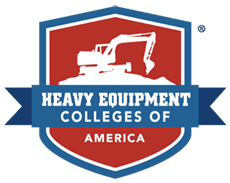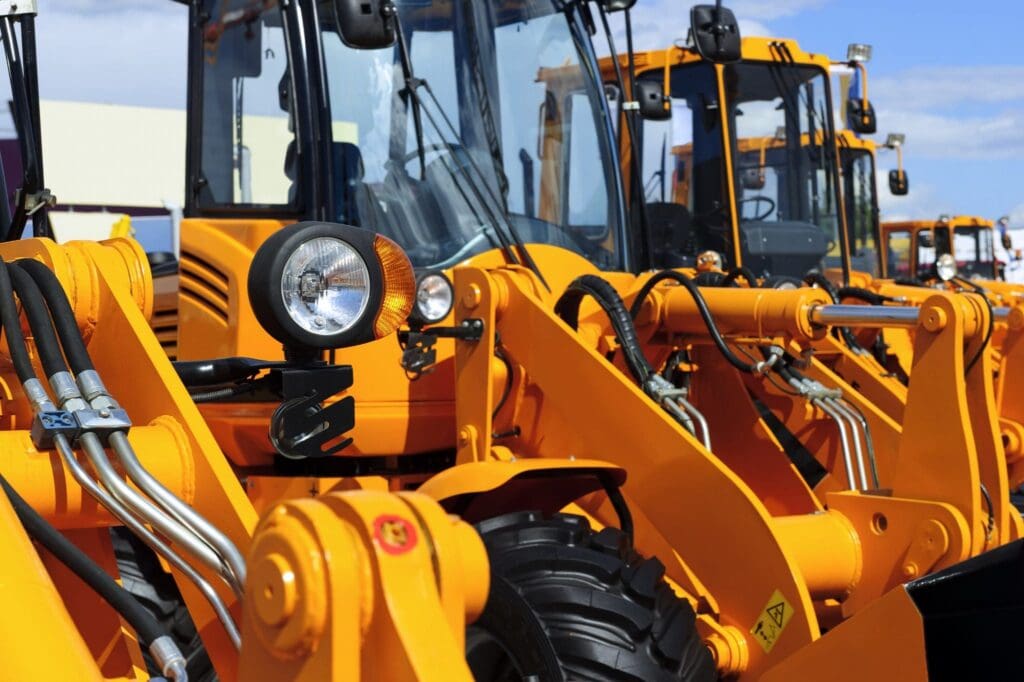Have you ever caught yourself daydreaming about a career in the construction or heavy equipment industry? There’s no shame in wanting to better yourself with a rewarding career. However, you may feel like you don’t know anything about construction or the heavy equipment used to build structures. Learn more about the types of heavy equipment used in construction. This is your first step on the path to starting a new, exciting career.
Types of Heavy Equipment
To construct roads, bridges, and other public structures, construction crews rely on various heavy equipment, vehicles, and machines.The nature of the job and its environment best determines which piece of construction equipment is needed. Below is a list of common types of heavy equipment you’d find on a worksite.
- Excavators
One of the most common pieces of equipment on a construction site is excavators. They’re available with wheels or tracks, depending on the environment. An excavator can accomplish many tasks, including heavy digging, lifting, demolition, cutting down trees, and more. An excavator consists of a long arm with a digging bucket at the end. The operator controls it from a cabin that can rotate a full 360 degrees. - Backhoe
A backhoe, sometimes referred to as a backhoe loader, is equipped with a backhoe for excavating in its rear and a bucket for lifting and pushing in the front. Being that it has two useful attachments, these machines perform numerous tasks such as scooping, pushing, digging, and more. Compared to other pieces of equipment on this list, backhoes are more compact, making them useful in urban environments. - Bulldozers
Featuring a wide metal plate with a sharp edge, bulldozers are the perfect piece of earth-moving equipment. Bulldozers can also carry, push, and loosen up material on a construction site. The metal plate located at the front of a bulldozer can also break apart walls and other structures. Of course, the wall or structure would have to be shorter than the bulldozer itself, or else it could fall on top of the operator. - Tower Cranes
When construction crews need to hoist heavy materials to build a tall structure, they’ll use a tower crane. Concrete blocks, frames, steel trusses, and more can all be easily lifted and positioned by a tower crane operator. Tower cranes are fixed cranes, meaning they are put together on a construction site and remain there for the project’s duration. The parts of a tower crane include a vertical supporting tower called the mast, a jib which is the crane’s arm, and the counter jib, which is the other arm that carries the counterweight. - Compactors
As their name implies, compactors crush and compact material into a surface to level it. There are several types of compactors used for different purposes. The most common compactor type is a plate compactor used to level surfaces by crushing uneven debris. Another common type of compactor is a road roller, which helps flatten new roadways. - Loaders
If excavators, bulldozers, and other pieces of equipment remove material, where does it go? Crews use loaders to remove soil, demolition waste, and other raw materials onto a dump truck. Loaders are vital to keeping a construction site free of debris that might clog pathways or delay construction. You may find loaders with wheels or tracks depending on the terrain of the worksite. - Dump Trucks
As mentioned above, excavated soil and other debris will leave a construction site in a dump truck. Due to the heavy loads that dump trucks must carry and the ground condition they carry them over, dump trucks typically come equipped with large wheels. The deep grooves in the wheels allow these trucks to maneuver over most terrain.
Heavy Equipment Career
Has learning about these equipment sparked your interest in a heavy equipment career? It’s not too late to get started on a rewarding career in a profession that will always be around. But how do you get started in this industry? More importantly, how can you achieve success in a timely manner? Begin by exploring career opportunities in heavy equipment with HEC.
Biden-Harris Infrastructure Program
With a new administration in place, the President has announced and outlines a two-trillion-dollar plan to revive the economy. A major focal point of this plan is an infrastructure program. One of the key findings of this plan is creating new jobs in the heavy equipment and construction industry. The only thing standing in your way of landing one of these jobs is proper training and certification.
Get Trained at HEC
Ready to get started on your new career working with heavy equipment? Apply to a program at HEC. We offer students the chance to receive the necessary training and certification needed to be successful. And the best part is, you can complete our programs in as little as three weeks. During your hands-on training, you’ll learn how to operate machinery in practical settings. And when your training is complete, HEC will help you sharpen your resume writing and interview skills, as well as contact employers on your behalf. You can find HEC locations across the country, with programs varying from location to location. Get trained. Get ahead. And get started on the path to success with programs at HEC.

